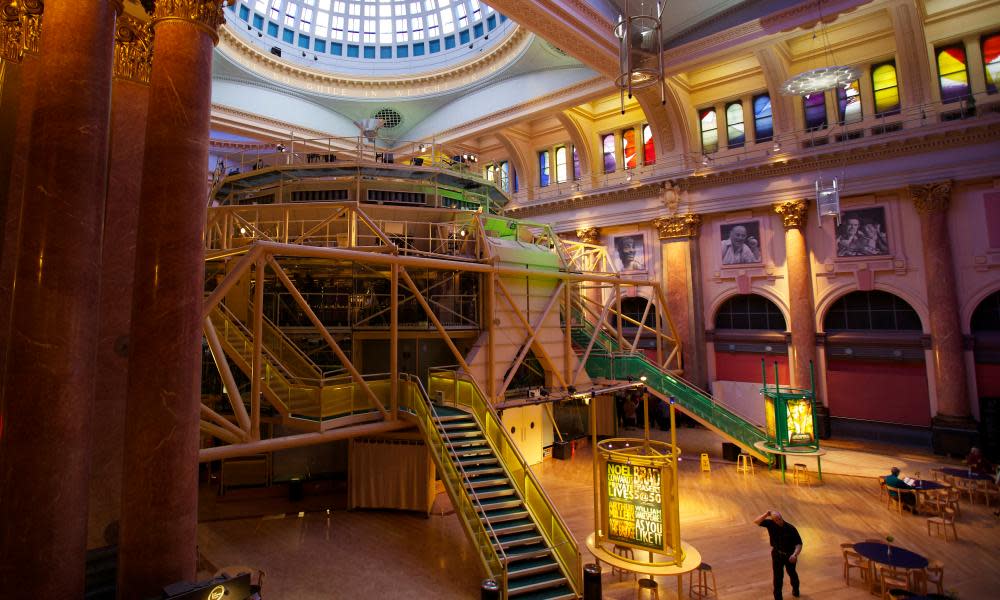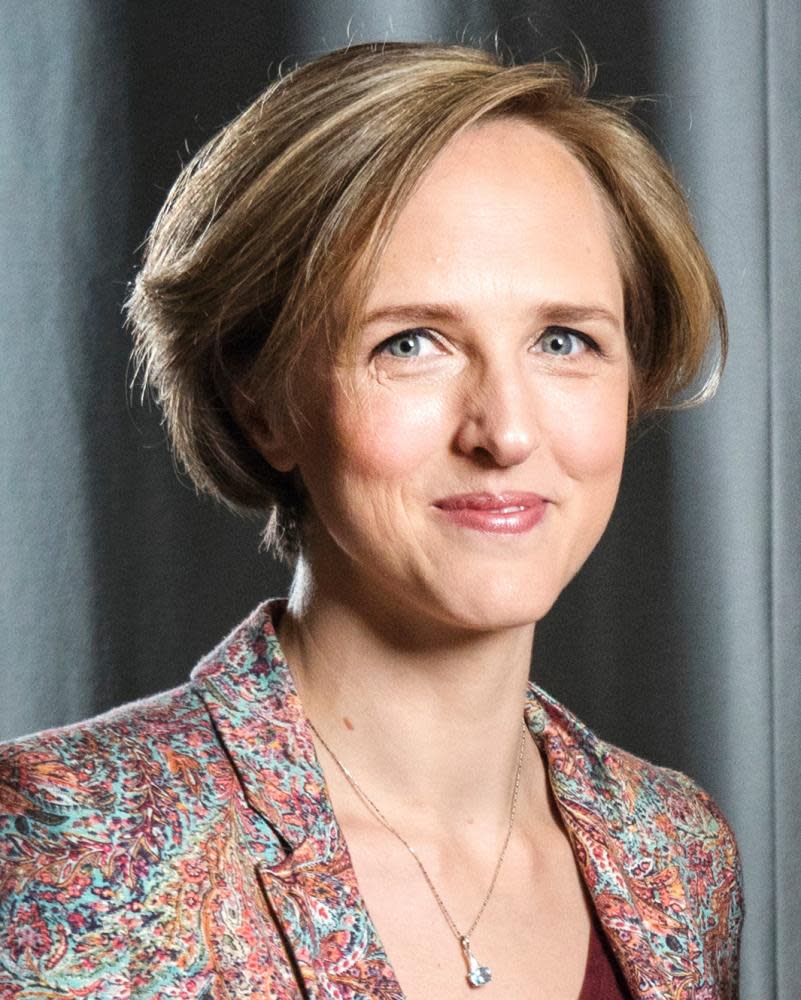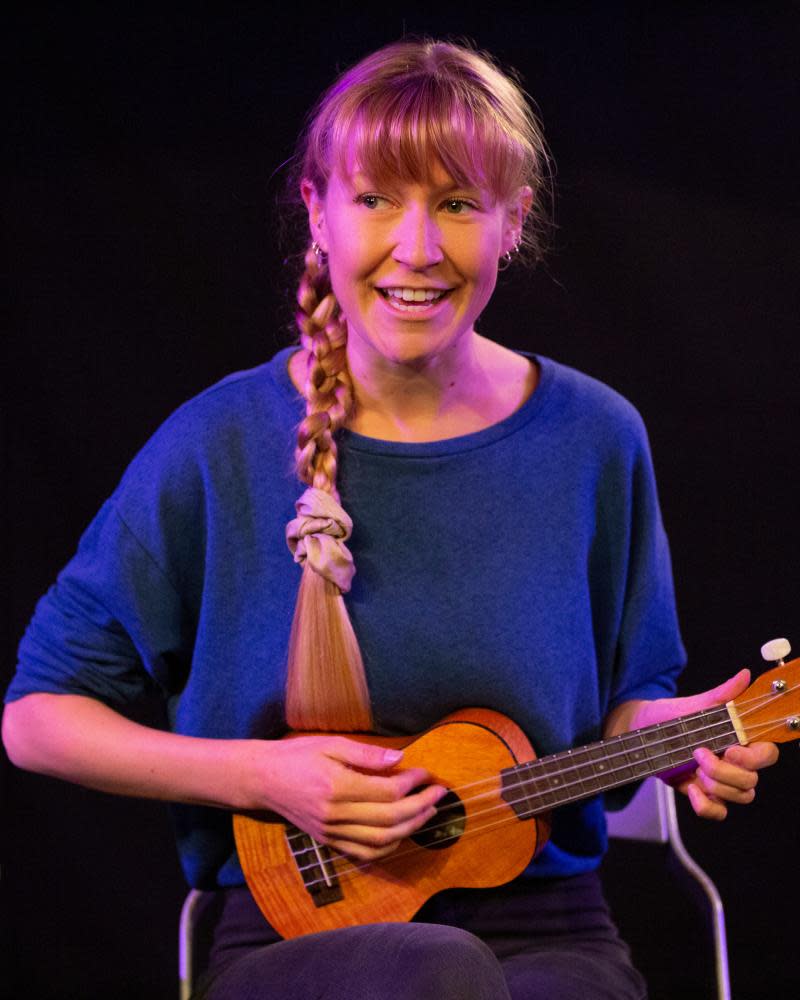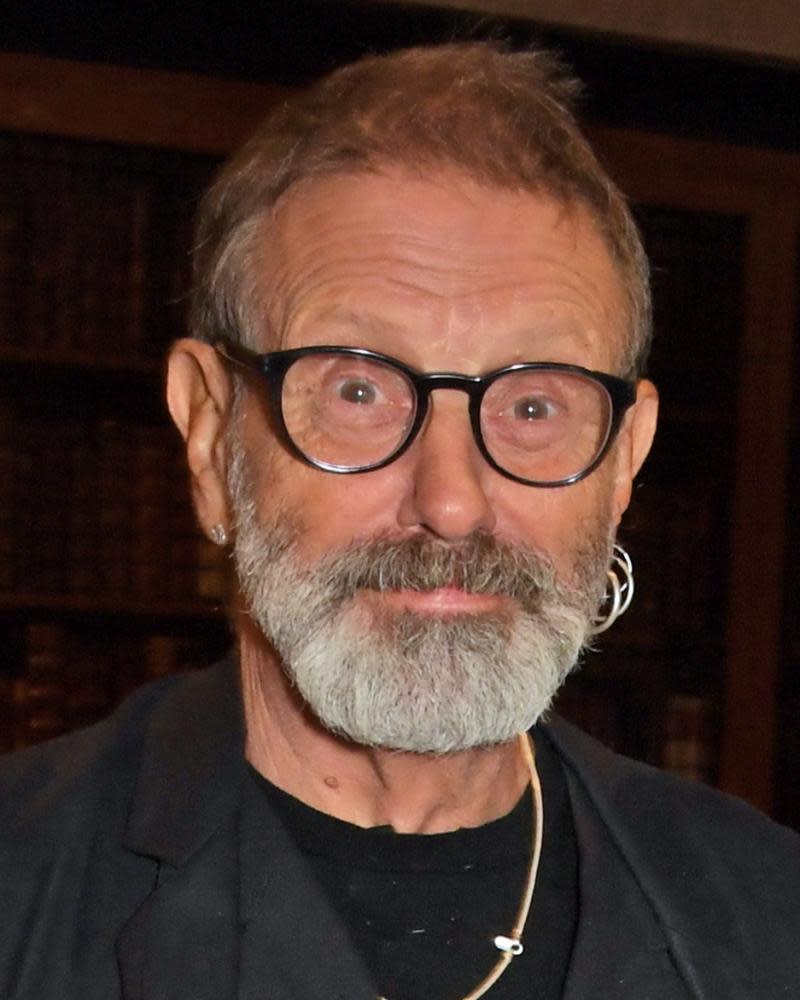Theatres that made us: from Manchester's Royal Exchange to Cardiff's Chapter

‘You could hear every syllable, see every bead of sweat’

Shobna Gulati: My enduring love affair with theatre started when I fell head over heels with being “in the pod” of Manchester’s Royal Exchange in my early teens. I would be first in line on a Saturday morning with my best friend, queuing for a “banquette” for the matinee. Clutching our tickets, we would hang out in that colossal, echoey, airy, marble-pillared space; we marvelled at all the magnificence as we ate our lunch. Typically, theatre loos are woeful, but the toilets were fabulous, with plenty of big cubicles and separate space to spruce up, so there was no rush when the hand bell rang for the start of the show.
The seats we bought were very special – pocket-money-affordable and at stage level. You could hear every syllable, see every bead of sweat. It inspired me to become an actor. Very significant for me was seeing black and brown actors being brilliant and in leading roles in totally representative and integrated casts: Derek Griffiths in The Government Inspector, Art Malik in Great Expectations, Josette Bushell-Mingo as Cleopatra. I have seen extraordinary work there, sometimes with women cast in traditionally male roles, such as Maxine Peake’s Hamlet. Vivienne Franzmann’s play Mogadishu, which I saw in 2011, continues to fill my head with its story.
My proudest moments as a performer happened in that building, too. First, as a teenage dancer, dancing the classical Bharatanatyam Alarippu one rainy Sunday afternoon. Little did I know I would end up acting in and choreographing some Royal Exchange productions myself. Working there requires the understanding that, wherever you are on that stage, you are in the palm of the audience’s hands.
Shobna Gulati stars in the postponed tour and film version of Everybody’s Talking About Jamie; her memoir Remember Me? is out in September. Read more about the Royal Exchange.
‘They gave us a chance to make something together’

Tamara Harvey: 3am on a cold November night in 2003. Lighting designer Emma Chapman up a ladder, me on the lighting desk, working through the night to be ready for the dress rehearsal of Young Emma, an adaptation of WH Davies’ memoir by the unknown playwright Laura Wade. Suddenly, the electricity blew and we were plunged into darkness.
In that moment, it felt like the theatre gods were mocking us, but I wonder now if they were just telling us to go home and get some sleep. Either way, that jewel of a fringe theatre – the Finborough in London – offered me and my now long-term collaborators a chance to make something together when we couldn’t get a foot in the door anywhere else. For that, I will love it always.
Tamara Harvey is the artistic director of Theatr Clwyd. Read more about the Finborough.
‘It’s always there when you need it’
Catherine Paskell: Cardiff’s Chapter is like a Swiss army knife: it has theatres, cinemas, an art gallery, studios, a community garden and a really great bar – the only place in Cardiff where I can get my favourite German beer (Schneider Weisse Tap7 – I recommend). This bar helps Chapter earn 82% of its income, money that is put back into artist support. It’s a magic formula for companies like us, but also means Chapter has been seriously hit by the pandemic.
And, like a Swiss army knife, Chapter is always there when you need it. It was created in 1971 (after a fundraising concert headlined by Black Sabbath and Pink Floyd) to give artists a place to work away from commercial pressures. These days, it’s a bit more black coffee than Black Sabbath, but the values remain and it has done so much for us: giving space, co-producing our work, even helping us create a safe audience conga with 150 people who had had copious Christmas drinks. It is outward-looking and welcoming, putting community connection at the heart of what it does. I can’t wait to get back in there for another German beer.
Catherine Paskell is the artistic director of Dirty Protest Theatre. Read more about Chapter.
‘Doubt theatre’s importance? Ride your high horse here’

Katie Arnstein: Redbridge Drama Centre in South Woodford is a remarkable place. It provides the community with a safe, supportive and generous environment in which to create, learn and be entertained. With theatres being closed, it is not the shows that I have missed, but the sense of togetherness that being in a theatre gives. And the venue I have missed the most is RDC.
Its kind, passionate, warm and wise staff understand that theatre is for everyone. The venue is run by members of the community, for the community, and they invite everyone to be a part of it. To those who doubt the importance of theatre, particularly those in government, I invite you to ride your high horse to Redbridge Drama Centre. You will see that quality and entirely accessible theatre is not just important; it is vital.
Katie Arnstein’s It’s a Girl! trilogy comprises Bicycles and Fish, Sexy Lamp and Sticky Door. Read more about Redbridge Drama Centre.
‘They made me feel valuable and visible’
Iqbal Khan: I was terrified meeting Kevin Shaw, the artistic director at the Oldham Coliseum. I was still in the middle of a bursary at the Leicester Haymarket and the play we were talking about me possibly directing was Beautiful Thing by Jonathan Harvey. I didn’t feel qualified, in any sense.
Kevin refused to let me sit. He walked me around the beautiful, slightly ramshackle building, introducing me to every person who worked there. The place felt alive with the voices of the town – mothers who had seen shows there as children and now worked on the box office, young people who had returned to the town and worked in marketing, local builders in the workshop. They were all excited about encountering someone who bore so little resemblance to them, prospectively coming and creating something that would take them all somewhere new, keen to help me make whatever I might dream up.
It was a magical, brave and profoundly compassionate experience. Kevin and the Oldham Coliseum made me feel valuable and visible. And I will always cherish the strength and joy they engendered in me. I got the job! My first. It was a beginning and I loved the theatre, learned from the people in that building and have always been thrilled by the honest, generous and passionate audiences.
Iqbal Khan directed the RSC’s 2015 production of Othello, which will be broadcast on BBC Four on 12 July and is on BBC iPlayer. Read more about Oldham Coliseum.
‘Not just a building, but the city’s beating heart’

Mike Kenny: York Theatre Royal, in the town where I live, is an old and beautiful building, but much of the exciting work I have done with it has not actually been on either of its two stages. I think it started in a huge tent over a railway line at the back of the National Railway Museum, where we did The Railway Children with a classic steam train borrowed from the museum. We then revived the York Mysteries under the walls of St Mary’s Abbey, with 1,700 local people. A couple of years later, in Blood and Chocolate, a collaboration with Slung Low and Pilot Theatre, we were moving hundreds of people through the streets of the city telling the stories of the workers of the Rowntree’s factory during the first world war.
It’s a beautiful building, but it’s porous. It’s the people, young and old, who pass in and out of it. York Theatre Royal is not just a building and what happens inside it; it is the beating cultural heart of the city. I hope that recent events do not drive it back within its walls. I love it.
Mike Kenny is a playwright. Read more about York Theatre Royal


